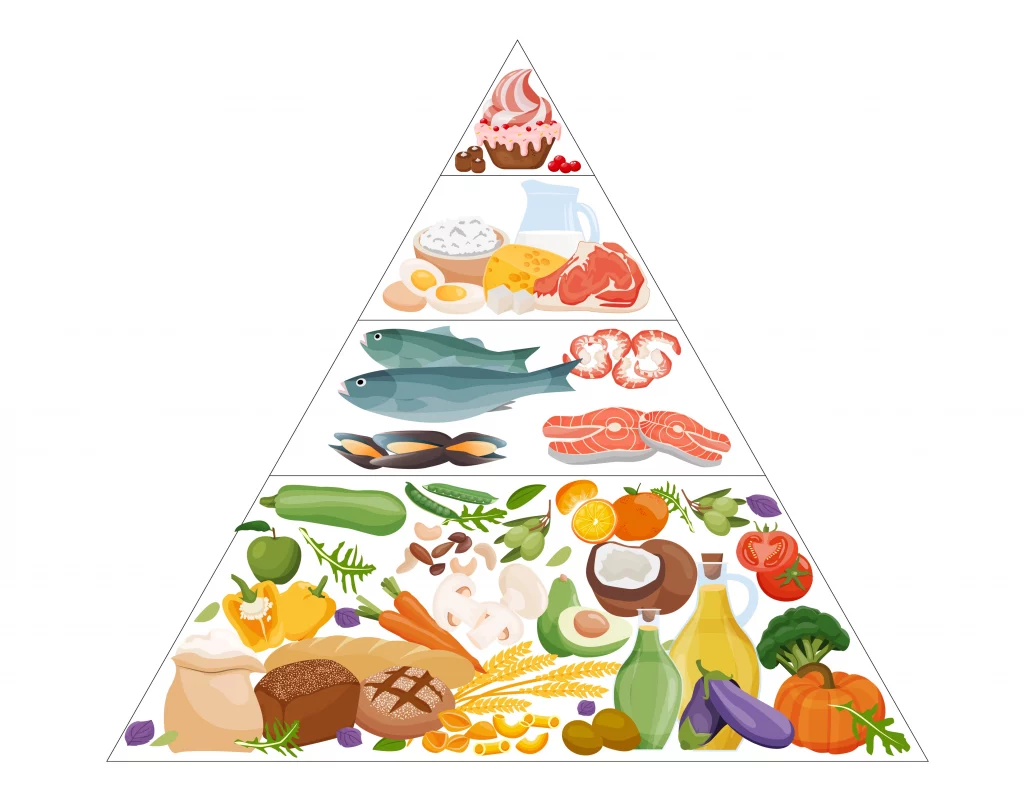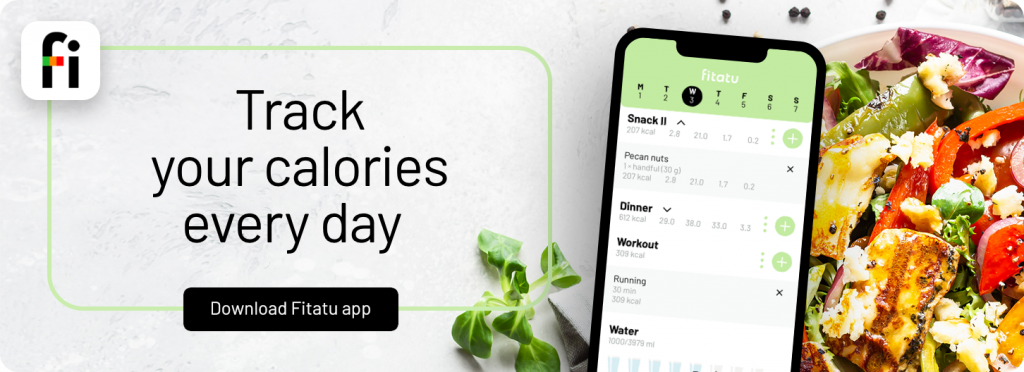World Heart Day 29/09 – heart-friendly diet

World Heart Day
In September, both in Poland and worldwide, World Heart Day is commemorated. The event aims to highlight cardiac issues and raise public awareness about the prevention of circulatory system diseases, including the heart – a muscle without which there is no life. Cardiovascular diseases have always been at the top of death causes in Poland. Although the mortality rate from this cause is slowly declining, overtaken by cancers and respiratory diseases, promoting a healthy heart diet and encouraging a better lifestyle remain a priority.
Mediterranean Diet and DASH Diet
What diet is best for the heart? Numerous studies suggest that the Mediterranean and DASH diets have a protective effect on heart function. It’s worth incorporating elements of these diets into your nutrition to care for your heart and health.
Mediterranean Diet
Back in the 1950s, researchers observed that the dietary habits of people living along the Mediterranean coast reduced the risk of cardiovascular diseases. These people used olive oil as their primary fat source. As known back then, it is rich in healthy unsaturated fatty acids. The primary protein sources in this diet are seafood and fish, with lesser amounts of white meat and eggs, and red meat is rarely consumed. The Mediterranean diet lowers saturated fatty acid levels and increases omega-3 acid intake. It’s rich in whole grain products, nuts, and seeds, ensuring adequate dietary fiber intake. Wine is served with main meals. Grapes, used to make dry red wine, contain resveratrol, an antioxidant that inhibits atherosclerotic plaque formation. This substance benefits heart health and the entire cardiovascular system.

DASH Diet
Developed by nutrition experts and dietitians, this diet was designed to combat hypertension and cardiovascular diseases. The DASH diet aligns with many principles of the Mediterranean diet. Its main tenets include high consumption of vegetables and low-fat dairy products. This diet is based on whole grain products, seafood, nuts, seeds, fruits, legumes, and poultry. This heart-friendly diet is beneficial because it limits sugar, saturated fatty acids, and salt sources. As a result, it excludes sweets, sweetened beverages, fast foods, and salty snacks. Also limited are red meat, its processed variants, full-fat dairy, and eggs.
Heart-friendly Foods
Vegetables
The more colorful and diverse, the healthier. This principle certainly applies to the consumption of fruits and vegetables. Their colors depend on the content of health-promoting substances like flavonoids, polyphenols, and other antioxidants. Vegetables are a source of vitamins, minerals, and valuable dietary fiber. Furthermore, many studies suggest that a diet rich in these can reduce total cholesterol levels. As a result, a vegetable-rich diet lowers the risk of cardiovascular diseases.
Fruits
Fruits are an excellent source of vitamins, especially vitamins A, C, and E, which are antioxidants that reduce free radicals in the body. Antioxidants help inhibit the oxidation process of LDL cholesterol fractions and prevent the formation of atherosclerotic plaque. This plaque can block the circulatory system, leading to atherosclerosis, a major cause of heart attacks.
Nuts and Seeds
Unsaturated fatty acids reduce total cholesterol levels, particularly its harmful low-molecular fractions. Nuts and seeds, which can be both a healthy snack and a tasty addition to smoothies or salads, are sources of these fats.
Sea Fish
Fatty sea fish are a good source of omega-3 acids, supporting heart function. Additionally, they provide protein and vitamin D. It’s recommended to incorporate them more frequently into the diet as a substitute for red meat. Fish with the highest omega-3 content include mackerel, salmon, herring, trout, and tuna.
Olive Oil and Rapeseed Oil
To care for the heart, choose plant-based oils. They are a source of the antioxidant vitamin E. Particularly recommended are olive oil and native rapeseed oil. Rapeseed oil, like olive oil, is a source of unsaturated fatty acids and is distinguished by a favourable ratio of omega-3 to omega-6 acids.
What negatively affects heart health
Saturated fatty acids
Saturated fatty acids, especially of animal origin, can contribute to an increase in triglyceride levels and LDL cholesterol fractions. Sources include lard, fatty meats (especially red), offals, cream, eggs, full-fat dairy, yellow cheeses, and mould cheeses.
Sugar
An excess of sugar, mainly from high consumption of sweets, white bread, and sugar-sweetened beverages, negatively impacts health. Excess sugar intake leads to overweight, obesity, and increases the risk of type 2 diabetes. Obesity also heightens the risk of cardiovascular diseases.
Trans Fats and Salt
Fast food products, salty snacks, and sweets are sources of dangerous trans isomers. These molecules adversely affect heart health and contribute to the development of coronary artery disease. Additionally, salty snacks and fast foods contain large amounts of salt, and its high consumption can lead to hypertension.
Alcohol
Alcohol, especially in large quantities, increases blood pressure. In individuals with hypertension or at risk, it can initiate or exacerbate this condition.
Lifestyle and heart health
Physical Activity
Diet is only one aspect of heart health. For comprehensive cardiovascular care, physical activity is essential. Choose your preferred form of movement, ensuring it pleases you, whether it be walking or cycling. According to WHO guidelines, this should amount to 150-300 minutes of moderate activity or 75-150 minutes of high-intensity activity per week.
Substances
Cigarette smoking significantly increases the risk of cardiovascular diseases, so for the sake of your heart, quit the habit. Overindulging in alcohol, aside from its detrimental effects on the liver, also increases blood pressure and leads to hypertension.
Proper Body Weight
Being overweight or obese are risk factors for developing atherosclerosis and increase the risk of death from cardiovascular diseases. Maintaining a healthy weight promotes the well-being of the entire body.
Stress Management
Chronic stress, if not managed well, can have adverse effects on heart health. High stress levels can lead to increased blood pressure, irregular heart rhythms, and damage to blood vessels. Implementing relaxation techniques, meditation, or seeking counseling can be beneficial in stress management.
Regular Check-ups
Regular medical check-ups are crucial to ensure early detection of any cardiovascular risks. By monitoring blood pressure, cholesterol levels, and blood glucose levels, potential issues can be identified and managed promptly.
Sleep
Ensuring a good night’s sleep is crucial for heart health. Sleep deprivation can lead to problems like obesity, high blood pressure, and diabetes, which increase the risk of cardiovascular diseases. Aim for 7-9 hours of sleep nightly.
Incorporating these lifestyle habits can significantly reduce the risk of heart disease and promote overall well-being. Remember, small consistent steps can lead to big health rewards in the long run.

Fitatu® support group
Looking for motivation and support? Join the Fitatu support group on Facebook and achieve your goals with other Fitatu® app users. To learn more about the benefits of support groups, read the article Support groups – why are they needed?.
Fitatu® app
Download the app from the Play Store or Apple Store and start taking care of your diet and heart in a sustainable way! Don’t like ads and want access to all the features? Opt for the Fitatu® Premium plan! We have prepared a discount code -20% for blog readers: HEART-3R. Go to https://www.fitatu.com/app/order-and-payment and enter the code when shopping. In the case of an annual subscription, the service renews at the end of the annual period under the same terms and conditions, unless canceled by the user).
What do you find in Fitatu® Premium?
- More than 2,000 recipes plus dozens of new ones every month,
- additional intermittent fasting plans,
- ability to create shopping lists,
- 6 ready-made menus with meals,
- filtering of products and recipes,
- more synchronization with fit apps,
- web-based access to the app,
- no ads!
Older entries:
- Overview of materials intended for contact with food. What should kitchenware be made of?
- Demystifying fat: How many calories are in a fat?
- Sweet but smart snacks for kids : A look at popular sweets and healthier alternatives
- Fat in a weight loss diet — Enemy or ally?
- 11 tips on how to prepare meals faster





